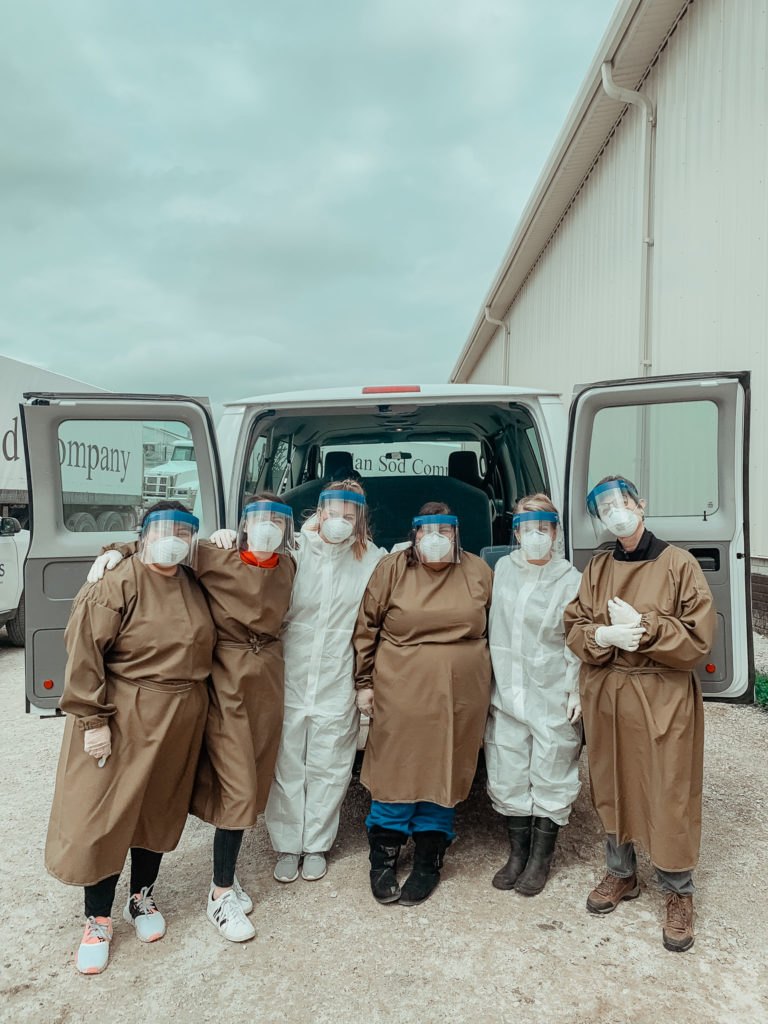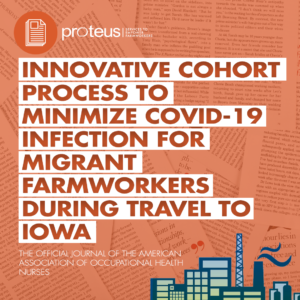Innovative Cohort Process to Minimize COVID-19 Infection for Migrant Farmworkers During Travel to Iowa

Migrant and seasonal farmworkers experience disproportionate infection from COVID-19. Integrating an innovative process to address the safety of these workers can allow for a safe release to work in the fields.
A Proteus, Inc. led collaboration with employers, HCPs, & migrant/seasonal farmworkers dropped COVID-19 infections from 12.7% positivity to 3.5%, year over year.
This research was created in collaboration with our partners at the University of Iowa. Research is critical to advance best practices, improve health outcomes, and devote resources to communities in need. Unfortunately there is a lack of research in general regarding farmworkers across the country.
I am proud of our team at Proteus for creating a successful COVID-19 testing and mitigation model that benefited farmworkers in Iowa. We are grateful to have the opportunity to add to the research in hopes of informing others about farmworkers.
– Daniel Zinnel, Proteus CEO
Abstract
Background: Migrant and seasonal farmworkers (MSFW) experience disproportionate infection, severe disease and death from COVID-19. This report describes an innovative process to address the safety of MSFW that utilized cohorting that eventually allowed for safe release to work in the fields on a large family farm in Iowa.
Methods: Upon worker departure from Mexico, the employer arranged for bus seat assignments, mask use, and hand hygiene practice during the 3-day trip to Iowa. Upon arrival at the farm, surveillance testing and low-density housing cohorting based upon travel seat assignments allowed for early identification of infected workers and appropriate quarantine as per CDC guidelines. Upon completion of isolation or quarantine as appropriate, workers were released to congregate housing and work in the fields.
Findings: Compared to a migrant farmworker COVID-19 outbreak without travel pre-planning, the cohorting process produced a 3.5% positivity rate compared to an earlier season July farmworker group on the same farm with a 12.7% positivity rate.
Conclusions/Application to Practice: The success of this model points to the power of collaboration between farm employer, health care providers and workers to minimize worker infection and enable safe work in the fields. Increased state and federal support for MSFW protections could support infrastructure to proactively plan for prevention mechanisms to prevent the spread of known communicable disease. With support in place from the top down, employers, workers, and health care providers will be able to prioritize the management of infectious diseases and the needs of essential workers.

Responses